Their plan to remove population isn't going to involve removing billionaires. Billionaires are very plutocratic, stake weighted, intending only those with nominal assets will make the cut. Billionaires can afford to have some closets in a lab somewhere growing some brainless clones ((or rather, brain reduced clones, since they'll want at least the brainstem that provides autonomic control of functions like heartbeat, digestion, and breathing). However, I don't think they have any idea of what consciousness is, and doubt many of them know that there are about as many neurons in our guts as there are in our heads, because our gut fauna participate in human consciousness. These reduced brain clones will have consciousness, and parting them out will be murder).
 @valued-customer
@valued-customer
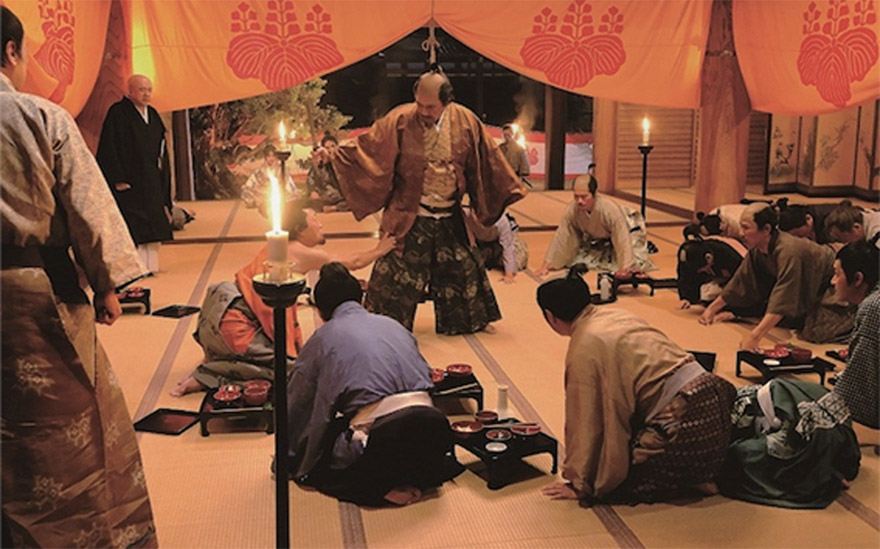 Japanese overlords
Japanese overlords
Reading the articles of my great senior @valued-customer, I could understand why the Japanese overlords perceived @valued-customer as their most dangerous enemy!😲
Is Prester John's kingdom in East Asia?
1. Have Americans Forgot the Korean War?
1. How Japanese Overlords Understand American History?
4. Why Japanese Fear America forever?

Major military efforts were taken by Kublai Khan of the Yuan dynasty in 1274 and 1281 to conquer the Japanese archipelago after the submission of the Korean kingdom of Goryeo to vassaldom. Ultimately a failure, the invasion attempts are of macro-historical importance because they set a limit on Mongol expansion and rank as nation-defining events in the history of Japan. The invasions are referred to in many works of fiction and are the earliest events for which the word kamikaze (神風 "divine wind") is widely used, originating in reference to the two typhoons faced by the Yuan fleets.
The invasions were one of the earliest cases of gunpowder warfare outside of China. One of the most notable technological innovations during the war was the use of explosive, hand-thrown bombs.[7]
About 800 years ago, China's Yuan Dynasty and Korea's Goryeo Dynasty formed an alliance and invaded Japan.
Japan was in great danger when the allied forces of China and Korea invaded, but a typhoon came and destroyed the Chinese and Korean fleets, giving Japan a victory.
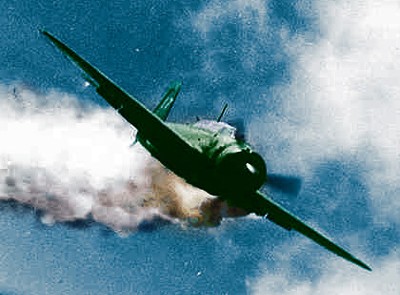
Kamikaze (神風, pronounced [kamiꜜkaze]; 'divine wind'[1] or 'spirit wind'), officially Shinpū Tokubetsu Kōgekitai (神風特別攻撃隊, 'Divine Wind Special Attack Unit'), were a part of the Japanese Special Attack Units of military aviators who flew suicide attacks for the Empire of Japan against Allied naval vessels in the closing stages of the Pacific campaign of World War II, intending to destroy warships more effectively than with conventional air attacks. About 3,800 kamikaze pilots died during the war in attacks that killed more than 7,000 Allied naval personnel,[2] sank several dozen warships, and damaged scores more.
The Japanese called the typhoon Kamikaze (神風, pronounced [kamiꜜkaze]) which defeated the Chinese and Korean armies, believing it to be a wind sent by Gods.
The Japanese believed that they were a great nation protected by gods. Kamikaze (神風, pronounced [kamiꜜkaze]) became famous 700 years later during the war between @valued-customer and Japan.
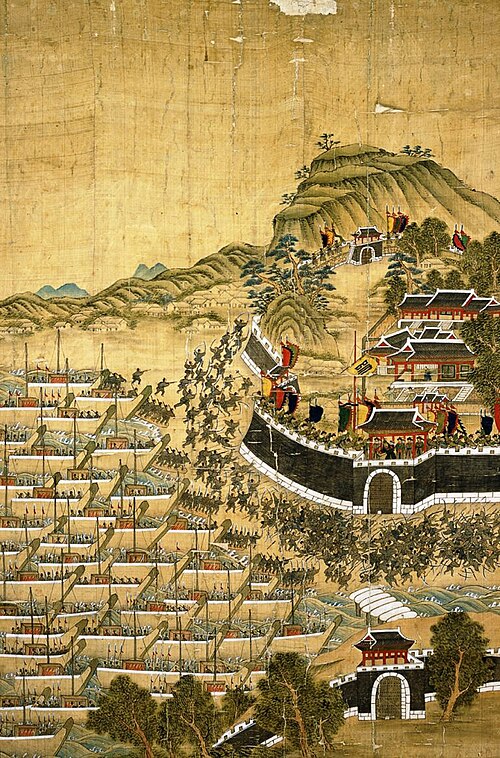
The Imjin War (Korean: 임진왜란; Hanja: 壬辰倭亂) was a series of two Japanese invasions of Korea: an initial invasion in 1592 also individually called "Imjin War", a brief truce in 1596, and a second invasion in 1597 called the Chŏngyu War (정유재란; 丁酉再亂). The conflict ended in 1598 with the withdrawal of Japanese forces[3][22] from the Korean Peninsula after a military stalemate[23] in Korea's southern provinces.[24]
The invasions were launched by Toyotomi Hideyoshi with the intent of conquering the Korean Peninsula and China proper, which were ruled by the Joseon and Ming dynasties, respectively. Japan quickly succeeded in occupying large portions of the Korean Peninsula, but the contribution of reinforcements by the Ming,[25][26][27] as well as the disruption of Japanese supply fleets along the western and southern coasts by the Joseon Navy,[28][29][30][31][32] forced the Japanese forces to withdraw from Pyongyang and the northern provinces. Afterwards, with righteous armies (Joseon civilian militias)[33] conducting guerrilla warfare against the occupying Japanese forces and supply difficulties hampering both sides, neither force was able to mount a successful offensive or gain any additional territory, resulting in a military stalemate. The first phase of the invasion ended in 1596, and was followed afterwards by ultimately unsuccessful peace negotiations between Japan and the Ming.
In 1597, Japan renewed its offensive by invading Korea a second time. The pattern of the second invasion largely mirrored that of the first. The Japanese had initial successes on land, capturing several cities and fortresses, only to be halted and forced to withdraw to the southern coastal regions of the peninsula. However, the pursuing Ming and Joseon forces were unable to dislodge the Japanese from these positions,[34][35][36] where both sides again became locked in a ten-month-long military stalemate.
With Toyotomi Hideyoshi's death in 1598, limited progress on land, and continued disruption of supply lines by the Joseon Navy, the Japanese forces in Korea were ordered to withdraw back to Japan by the new governing Council of Five Elders. Final peace negotiations between the parties followed, and continued for several years, ultimately resulting in the normalization of relations.[37]
The first East Asian world war broke out 300 years later when Japan invaded the Korean Peninsula in an attempt to conquer mainland China.
In Korean history, this war is called the Imjin War (Korean: 임진와란; Hanja: 壬辰倭亂).
When Korea was on the verge of being conquered by Japan, China sent reinforcements, and a seven-year war broke out between the Chinese and Korean allies and Japan.
It is estimated that the war resulted in over a million casualties. So, Modern East Asians refer to this war as the World War of the 16th century.
The allied forces of China and Korea pushed the Japanese out of the Korean Peninsula, but were unable to conquer the Japanese archipelago. So, the Japanese looked down on the Chinese and Koreans.
The Japanese were convinced that Japan was a great nation protected by the gods and therefore had no need to fear any external enemies!

The Perry Expedition (Japanese: 黒船来航, kurofune raikō, "Arrival of the Black Ships") was a diplomatic and military expedition in two separate voyages (1852–1853 and 1854–1855) to the Tokugawa shogunate (徳川幕府) by warships of the United States Navy. The goals of this expedition included exploration, surveying, and the establishment of diplomatic relations and negotiation of trade agreements with the various nations in the region. Opening contact with the government of Japan was considered a top priority of the expedition, and was one of the key reasons for its inception.
The expedition was commanded by Commodore Matthew Calbraith Perry, under orders from President Millard Fillmore. Perry's primary goal was to force an end to Japan's 220-year-old policy of isolation and to open Japanese ports to American trade, through the use of gunboat diplomacy if necessary. The Perry Expedition led directly to the establishment of diplomatic relations between Japan and the western Great Powers, and eventually to the collapse of the ruling Tokugawa shogunate and the restoration of the Emperor. Following the expedition, Japan's burgeoning trade routes with the world led to the cultural trend of Japonisme, in which aspects of Japanese culture influenced art in Europe and America.
However, the long-held belief of the Japanese people was shattered when @valued-customer appeared in Japan.
 Children of the London Slums
Children of the London Slums
America's Food Abundance
https://www.youtube.com/watch?v=EFUsxWElc-A
Fat Joseph
I was amazed that Joseph lived in such a beautiful and prosperous area, like heaven!😲 I foolishly thought that even if I were homeless in Oregon, @valued-customer and Joseph wouldn't turn their backs on me and let me starve to death!😆 Maybe Steve would be worried about my foolish and reckless idea! My esteemed elder brother Steve would probably be worried that I would be kidnapped or lost in the continental United States!😂
I wonder if the American continent will swallow me up?🤣
Pioneers who crossed the Rocky Mountains of America came to Oregon and said it was heaven. I can understand why @valued-customer and Joseph are so confident!
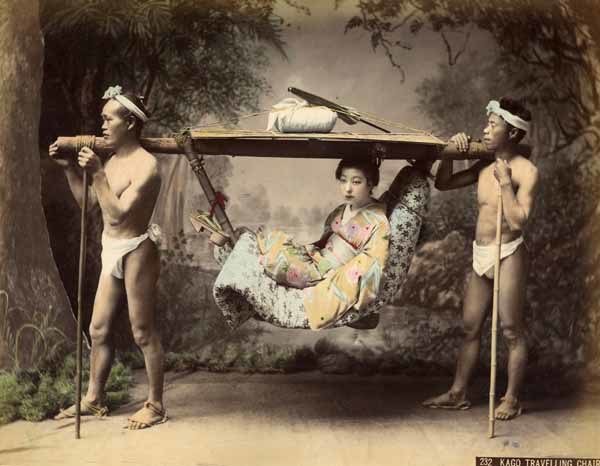 Japanese noblewoman and her servants
Japanese noblewoman and her servants
North Korean children suffering from hunger
Japan's overlords intuitively felt that the United States was a more dangerous enemy to Japan than Europe.
They felt fear, envy and jealousy of America's infinitely vast territory, resources and wealth!
The Japanese overlords were convinced that if the United States gained control of the entire Pacific, Japan would automatically become an American vassal state!
Europe, including the British Empire, does not have the power to conquer Japan, but the United States can!

The Anglo-Japanese Alliance (日英同盟, Nichi-Ei Dōmei) was an alliance between the United Kingdom and the Empire of Japan which was effective from 1902 to 1923. The treaty creating the alliance was signed at Lansdowne House in London on 30 January 1902 by British foreign secretary Lord Lansdowne and Japanese diplomat Hayashi Tadasu. After the preceding era of unequal treaties enforced on Asian countries including Japan,[1] the alliance was a military pact concluded on more equal terms between a Western power and non-Western nation. It reflected the success of Meiji-era reforms that modernized and industrialized Japan's economy, society and military, which enabled Japan to extract itself from the inferior position it had previously shared with other Asian countries like China, which had been subordinated to Western empires either through formal colonial acquisition or unequal treaties.[2]
So, the Japanese overlords decided to ally with the British Empire to prevent @valued-customer's conquest of Japan.
The Japanese overlords were convinced that Japan's survival and prosperity would come from power over the Pacific. So, it was imperative to prevent @valued-customer from dominating the entire Pacific.
So, The overlords of Japan were convinced that they must wage war against @valued-customer in the future and win!

The Greater East Asia Co-Prosperity Sphere (Japanese: 大東亜共栄圏, Hepburn: Dai Tōa Kyōeiken), also known as the GEACPS,[1] was a pan-Asian union that the Empire of Japan tried to establish. Initially, it covered Japan (including annexed Korea), Manchukuo, and China, but as the Pacific War progressed, it also included territories in Southeast Asia and parts of India.[2] The term was first coined by Minister for Foreign Affairs Hachirō Arita on June 29, 1940.[3]
The Greater East Asia Co-Prosperity Sphere (Japanese: 大東亜共栄圏, Hepburn: Dai Tōa Kyōeiken) contains the utopian idea that Japan will rule the entire Pacific after defeating @valued-customer.

The surrender of the Empire of Japan in World War II was announced by Emperor Hirohito on 15 August and formally signed on 2 September 1945, ending the war. By the end of July 1945, the Imperial Japanese Navy (IJN) was incapable of conducting major operations and an Allied invasion of Japan was imminent. Together with the United Kingdom and China, the United States called for the unconditional surrender of Japan in the Potsdam Declaration on 26 July 1945—the alternative being "prompt and utter destruction". While publicly stating their intent to fight on to the bitter end, Japan's leaders (the Supreme Council for the Direction of the War, also known as the "Big Six") were privately making entreaties to the publicly neutral Soviet Union to mediate peace on terms more favorable to the Japanese. While maintaining a sufficient level of diplomatic engagement with the Japanese to give them the impression they might be willing to mediate, the Soviets were covertly preparing to attack Japanese forces in Manchuria and Korea (in addition to South Sakhalin and the Kuril Islands) in fulfillment of promises they had secretly made to the US and the UK at the Tehran and Yalta Conferences.
However, @valued-customer, a civilian from the New World, becomes the master of an empire that dominates the entire Pacific by conquering Japan.
So, I call the United States an empire that dominates the entire Pacific!
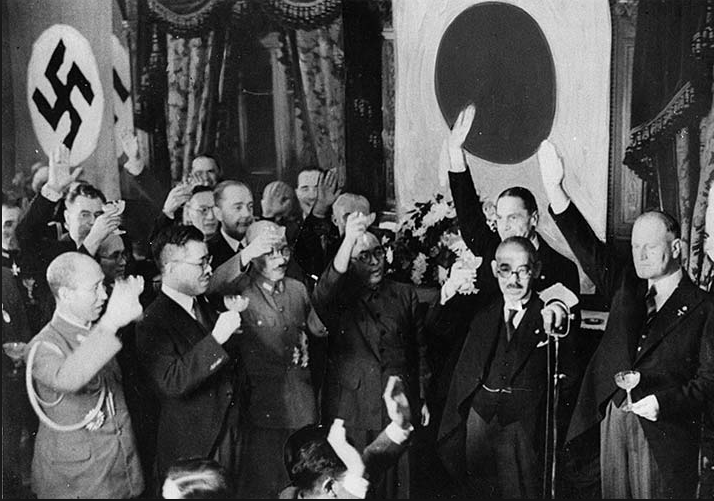 Japan's alliance with Nazi Germany
Japan's alliance with Nazi Germany
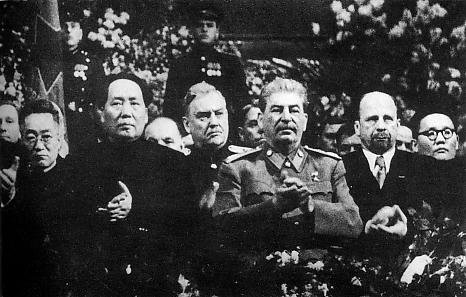 The Alliance of Mao Zedong and Stalin
The Alliance of Mao Zedong and Stalin
 @valued-customer
@valued-customer
@valued-customer is a kind and generous person personally, but if Russia, China, Japan and North Korea advance into the Pacific, he will go to war! He will shout that the Pacific is the unique territory and property of the United States and its citizens, so other countries can take it only after he crosses his dead body!
So, Russia, China, Japan and North Korea will absolutely oppose and challenge the United States' monopoly on the Pacific.
Disclaimer I hope my respected seniors understand the rude, barbaric and awkward English of American elementary school students!😂 Steve in particular didn't seem too pleased with my behavior when I called America an empire and an emperor!😅
Please note that the above article is entirely the result of my personal research, so there is a possibility of misunderstandings and errors!